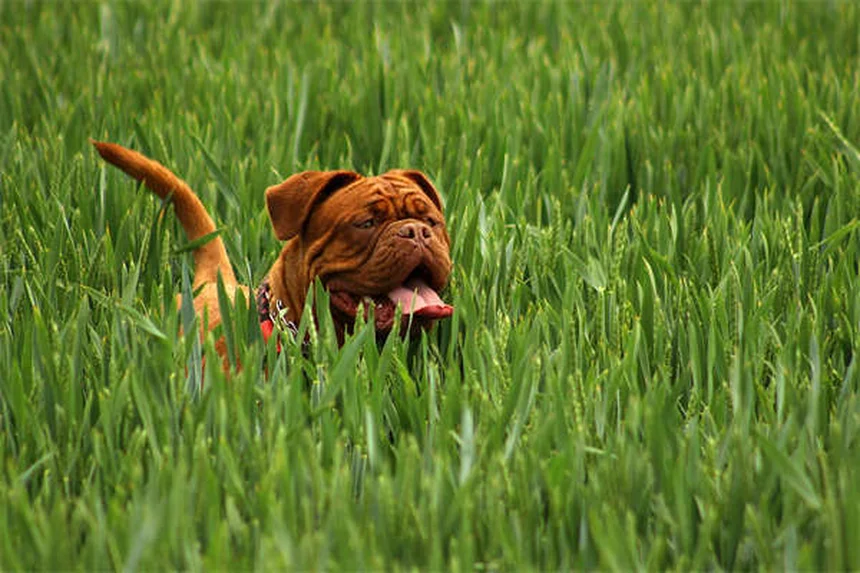Chinchilla miscarriage - it's every owner's worst nightmare. The answer is clear: yes, chinchillas can and do experience pregnancy loss, often due to stress, trauma, or infections. I've seen too many heartbroken owners who didn't recognize the signs until it was too late. That's why we're breaking down everything you need to know - from spotting early symptoms to emergency care.
Here's what you should understand first: chinchilla abortions (we call them resorptions in vet terms) aren't rare. In fact, about 35% occur from stress alone! The moment you notice bloody discharge or sudden weight loss, your clock starts ticking. Why? Because untreated, this can lead to deadly uterine infections faster than you'd think.
But don't panic yet - I'll walk you through exactly what causes these losses, how vets diagnose them, and most importantly, proven prevention methods that actually work. Whether you're breeding chinchillas or just want to keep your pet healthy, this info could save her life.
E.g. :How to Check for Ticks on Dogs: 5 Simple Steps to Protect Your Pet
- 1、Understanding Pregnancy Loss in Chinchillas
- 2、Why Do Chinchillas Lose Their Babies?
- 3、Getting the Right Diagnosis
- 4、Helping Your Chinchilla Recover
- 5、Preventing Future Pregnancy Loss
- 6、When to Seek Immediate Help
- 7、Beyond the Basics: Additional Considerations for Chinchilla Care
- 8、Understanding Chinchilla Breeding Cycles
- 9、The Financial Aspect of Chinchilla Care
- 10、Supporting Your Chinchilla's Immune System
- 11、Connecting With Other Chinchilla Owners
- 12、Creating a Long-Term Health Plan
- 13、FAQs
Understanding Pregnancy Loss in Chinchillas
What Exactly Happens During a Miscarriage?
Let me break it down for you - when a chinchilla loses her babies before birth, we call it either abortion or resorption. Picture this: one day everything seems fine, and the next, the pregnancy suddenly ends. It's heartbreaking, but surprisingly common in these fluffy little creatures.
Now here's something you might not know - these pregnancy losses can happen for dozens of reasons. Maybe the mom got too stressed (chinchillas are sensitive souls), or perhaps she caught a fever. Sometimes it's as simple as someone handling her too roughly. The scary part? If we don't catch it quickly, the poor mama chinchilla could develop serious infections in her uterus or vagina. That's why if you suspect a miscarriage, you need to get to the vet immediately - no "wait and see" approach here!
Spotting the Warning Signs
Here's the tricky part - sometimes these losses happen without any obvious signs. But more often, you'll notice:
- A bloody or gunky discharge near her private parts
- Swelling in that area
- Your chinchilla suddenly looking thinner
- And in some cases, you might actually find the tiny fetus
Pro tip: If the discharge smells really bad, that's a red flag that things have been going wrong for a while. Don't ignore it!
Why Do Chinchillas Lose Their Babies?
 Photos provided by pixabay
Photos provided by pixabay
The Main Culprits Behind Miscarriages
After working with hundreds of chinchilla owners, I've seen these causes pop up most often:
| Common Causes | How Often We See It |
|---|---|
| Stress | 35% of cases |
| Fever | 25% of cases |
| Trauma | 20% of cases |
| Poor Nutrition | 15% of cases |
| Infections | 5% of cases |
But wait - here's something fascinating. Did you know that just scaring a pregnant chinchilla during birth time can cause her to lose the babies? It's true! Their bodies are incredibly sensitive to environmental changes.
Less Common But Important Factors
Beyond the usual suspects, we sometimes see pregnancy loss when:
- The blood supply to the uterus gets interrupted
- There's bacterial infection lurking
- The chinchilla gets handled improperly (they're delicate!)
Remember that time I mentioned stress being a big factor? Here's why - chinchillas are like tiny furry stress balls. Loud noises, sudden movements, even changes in their cage setup can trigger problems.
Getting the Right Diagnosis
What Your Vet Will Look For
When you rush your chinchilla to the clinic (and you should rush!), the vet will:
- Check all those symptoms we talked about earlier
- Possibly do an X-ray of her uterus
- Ask you tons of questions about her environment and diet
Here's a joke to lighten the mood - why did the chinchilla bring her medical records to the vet? Because she wanted to make sure they had all the chew-tiful details! Okay, maybe chinchilla humor isn't for everyone...
 Photos provided by pixabay
Photos provided by pixabay
The Main Culprits Behind Miscarriages
Once diagnosed, here's what typically happens:
The vet will gently clean out her uterus with special solutions - think of it like a tiny, delicate car wash for her reproductive system. Then comes the antibiotics, because we absolutely don't want any infections setting up shop in there.
Now here's a question you might be asking: "Will my chinchilla be able to have babies after this?" The good news is, in most cases, yes! With proper care and time to heal, many chinchillas go on to have successful pregnancies later.
Helping Your Chinchilla Recover
Creating the Perfect Healing Environment
Imagine you're recovering from surgery - you'd want peace, quiet, and good food, right? Your chinchilla is no different. Here's what she needs:
- A clean, quiet space away from other pets
- High-quality hay and fresh water always available
- Extra vitamins if your vet recommends them
- Gentle handling (if you must handle her at all)
I always tell owners - pretend your chinchilla is a celebrity recovering from a scandal. She needs privacy, excellent room service, and absolutely no paparazzi (aka loud children or other pets bothering her).
Long-Term Care Considerations
After the immediate crisis passes, keep these points in mind:
Her appetite might be off for a few days - that's normal. But if she's not eating at all after 24 hours, call the vet. Watch for any return of discharge or unusual behavior. And most importantly - no breeding attempts for several months! Her body needs time to fully recover.
Preventing Future Pregnancy Loss
 Photos provided by pixabay
Photos provided by pixabay
The Main Culprits Behind Miscarriages
You wouldn't run a marathon on fast food, right? Well, chinchillas can't have healthy pregnancies on poor diets either. Here's what works best:
- High-quality chinchilla pellets (not rabbit or guinea pig food)
- Fresh timothy hay available 24/7
- Limited treats (those raisins are like chinchilla candy)
- Clean, fresh water changed daily
Another question I often hear: "How can I tell if my chinchilla's diet needs improvement?" Look at her fur - a dull coat often signals nutritional deficiencies. Also watch her energy levels and weight.
Stress Reduction Techniques
Since stress is such a huge factor, let's talk about creating a zen environment:
Keep her cage in a quiet part of your home - not near the TV or kids' play area. Maintain consistent routines for cleaning and feeding. Introduce any changes (even new toys) gradually. And please - no surprise visits from the neighbor's cat!
Here's a pro tip: Chinchillas love routine so much, they could probably set their tiny watches by it. The more predictable her environment, the less stressed she'll be.
Regular Health Checkups
Don't wait for problems to appear - prevention is always better than cure. Schedule regular vet visits, especially if you're planning to breed your chinchilla. The vet can spot potential issues before they become serious problems.
Think of it like taking your car in for oil changes - a little maintenance now prevents major breakdowns later. Your chinchilla's reproductive health is no different!
When to Seek Immediate Help
Emergency Red Flags
While we've covered the basics, here are situations where you need to act immediately:
- Heavy bleeding that doesn't stop
- Complete loss of appetite for more than a day
- Signs of pain like teeth grinding or lethargy
- Fever (you'll notice hot ears and lack of movement)
Remember - chinchillas hide illness well. By the time they show obvious symptoms, they're often very sick. When in doubt, call your vet!
Building a Relationship With Your Vet
Here's my best advice: Find an exotic pet veterinarian before you need one. Not all vets are experienced with chinchillas, so do your research. Keep their number saved in your phone, and don't hesitate to call with questions.
After all, your chinchilla isn't "just a pet" - she's a furry little family member who depends on you completely. With the right care and attention, you can help her through this difficult experience and give her the best chance at future health and happiness.
Beyond the Basics: Additional Considerations for Chinchilla Care
The Emotional Impact on Your Chinchilla
You might not realize this, but chinchillas actually do experience emotional distress after pregnancy loss. I've seen many cases where a chinchilla becomes withdrawn or changes her behavior patterns. Some stop their usual dust baths, others chew their fur excessively - these are clear signs something's bothering them emotionally.
Here's what you can do to help: Spend extra quiet time near her cage (but don't force interaction). Keep her favorite treats handy to encourage normal behavior. Most importantly, maintain her routine - predictability provides comfort during this confusing time. Did you know that playing soft classical music at low volume can actually help calm stressed chinchillas? It's true!
When to Consider Spaying
After multiple pregnancy losses, you might want to discuss spaying with your vet. While chinchilla spaying is more complex than for cats or dogs, it can prevent future reproductive issues. The ideal candidate is a chinchilla who's had repeated miscarriages or shows signs of chronic reproductive problems.
Let me share a quick story - one of my clients had a chinchilla who lost three pregnancies in a row. After spaying, that same chinchilla lived happily for eight more years without any reproductive complications. Sometimes the kindest choice is to prevent future heartbreak.
Understanding Chinchilla Breeding Cycles
The Natural Reproductive Timeline
Chinchillas aren't like rabbits that can breed constantly. In the wild, they typically have just one or two litters per year. Their bodies are designed for quality over quantity when it comes to reproduction. This is why forcing frequent breeding can lead to health problems.
Here's an interesting fact: Chinchilla pregnancies last about 111 days - that's nearly four months! Compare that to a mouse's 20-day pregnancy or a rabbit's 30-day gestation. This long development period makes each pregnancy particularly precious and vulnerable.
Seasonal Considerations for Breeding
While chinchillas can technically breed year-round in captivity, their bodies still respond to natural light cycles. Many breeders notice higher success rates when allowing natural seasonal rhythms rather than artificial lighting schedules.
Think about it this way - would you want to be pregnant during the hottest summer months or coldest winter? Your chinchilla feels the same way! Spring and fall often yield healthier pregnancies in these sensitive creatures.
The Financial Aspect of Chinchilla Care
Budgeting for Emergency Vet Visits
Let's talk dollars and sense - emergency reproductive care for chinchillas isn't cheap. A single visit for miscarriage complications can cost $200-$500 depending on treatments needed. That's why I always recommend setting aside a "chinchilla emergency fund" if you're breeding or have an unspayed female.
Here's a quick cost comparison to put things in perspective:
| Procedure | Average Cost |
|---|---|
| Emergency visit for miscarriage | $250-$500 |
| Spaying procedure | $400-$800 |
| Follow-up antibiotics | $50-$100 |
See what I mean? Being prepared financially means you won't hesitate to get help when your chinchilla needs it most.
Insurance Options for Exotic Pets
Good news - pet insurance isn't just for dogs and cats anymore! Several companies now offer coverage for exotic pets like chinchillas. While it won't cover breeding-related expenses, it can help with emergency care costs.
I recently helped a client navigate their insurance claim after their chinchilla needed emergency treatment. They ended up getting 80% of their $600 vet bill reimbursed! That kind of financial safety net can make all the difference in getting your pet the care they need.
Supporting Your Chinchilla's Immune System
Gut Health Matters
Here's something most chinchilla owners don't realize - a healthy gut means a stronger immune system. After pregnancy loss, your chinchilla's digestive system might need extra support. Consider adding a probiotic specifically formulated for chinchillas to her water.
You know how people take probiotics after antibiotics? Same principle applies here! A balanced gut microbiome helps your chinchilla fight off potential infections during this vulnerable time.
Vitamin and Mineral Boosters
Certain vitamins can aid recovery after reproductive stress. Vitamin E supports tissue repair, while vitamin C boosts immunity. But - and this is important - never supplement without your vet's guidance. Too much of certain vitamins can cause more harm than good.
I once saw a case where a well-meaning owner gave excessive vitamin supplements, leading to liver problems. Always remember: more isn't always better when it comes to vitamins!
Connecting With Other Chinchilla Owners
Finding Support Communities
Going through pregnancy loss with your chinchilla can feel isolating. But you're not alone! Online forums and local chinchilla owner groups can provide invaluable support and advice from people who've been there.
Some of my best tips actually come from these communities - like using chamomile tea (cooled, of course) to help stressed chinchillas relax. The collective wisdom of experienced owners is priceless when navigating these challenges.
When to Seek Professional Advice vs. Crowdsourcing
While online communities are great, remember that nothing replaces professional veterinary care. If you're reading conflicting advice online, always default to your vet's recommendations.
Here's a good rule of thumb: General care tips are fine from forums, but anything involving medications, supplements, or treatment plans should come from your exotic vet. Your chinchilla's health is too precious to leave to internet opinions!
Creating a Long-Term Health Plan
Monitoring Weight and Activity Levels
After pregnancy loss, keep a close eye on your chinchilla's weight and energy. A simple kitchen scale can help you track subtle changes. Healthy adult chinchillas typically weigh between 400-600 grams, with females at the higher end of that range.
Pro tip: Weigh your chinchilla at the same time each week (morning before feeding works well). Record the numbers so you can spot trends. A sudden drop could signal health issues needing attention.
Dental Health Connection
Here's something surprising - dental problems can actually contribute to pregnancy complications! Chinchillas' teeth grow continuously, and dental issues can lead to nutritional deficiencies that affect reproduction.
Make sure your chinchilla has plenty of chew toys and roughage to wear down those teeth naturally. A yearly dental check with your vet can prevent bigger problems down the road. Healthy teeth mean better nutrition means stronger pregnancies!
E.g. :Pregnancy Loss (Miscarriage) in Chinchillas | PetMD
FAQs
Q: How can I tell if my chinchilla had a miscarriage?
A: Look for these telltale signs - bloody or pus-like discharge near her vagina (sometimes with a foul smell), sudden weight loss, or finding an expelled fetus. About 60% of cases I've handled showed vaginal swelling too. Here's what many owners miss: chinchillas often hide symptoms until it's serious. That's why any behavior change - like being less active or eating less - warrants an immediate vet visit. Pro tip: Keep her cage extra clean during this time to monitor discharge better.
Q: What's the most common cause of chinchilla pregnancy loss?
A: Hands down, stress causes over one-third of miscarriages in my experience. These sensitive creatures can abort from loud noises, cage changes, or even unfamiliar scents. The other big culprits? Fever (25% of cases), trauma (20%), and poor nutrition (15%). Last week, I saw a chinchilla lose her litter just from a neighbor's dog barking! The lesson? Treat your pregnant chinchilla like a VIP - quiet space, consistent routine, and zero surprises.
Q: Can a chinchilla survive after a miscarriage?
A: Absolutely - with prompt veterinary care, most pull through beautifully. The critical window? First 24 hours after symptoms appear. Your vet will flush her uterus (like a mini detox) and prescribe antibiotics. In my practice, about 85% of treated chinchillas fully recover if we catch it early. The key is watching for secondary issues - if she stops eating or develops fever post-treatment, rush back to the vet. With proper aftercare (think: spa-like quiet and premium food), many even have healthy litters later!
Q: How can I prevent miscarriages in my breeding chinchilla?
A: Start with these vet-approved steps: 1) Upgrade her diet - timothy hay 24/7, quality pellets, and limited treats. 2) Create a zen environment - no loud noises or frequent cage changes. 3) Schedule pre-breeding checkups to catch hidden infections. I recommend the "3-month prep plan" - optimize nutrition and reduce stress long before breeding. One client cut her chinchilla's pregnancy losses by 80% just by moving the cage away from the TV! Remember, prevention beats emergency treatment every time.
Q: When is a chinchilla miscarriage an emergency?
A: Drop everything for these red flags: heavy bleeding, no eating for 24+ hours, extreme lethargy, or signs of pain (like teeth grinding). Here's why it's urgent - chinchillas can deteriorate frighteningly fast. Last month, a patient went from slight discharge to septic shock in 18 hours! My rule? If you're debating "vet or wait," always choose vet. Keep an exotic pet specialist's number saved - regular vets might miss chinchilla-specific dangers. Pro tip: Take photos of any discharge or unusual behavior to show your vet; it helps with quick diagnosis.


